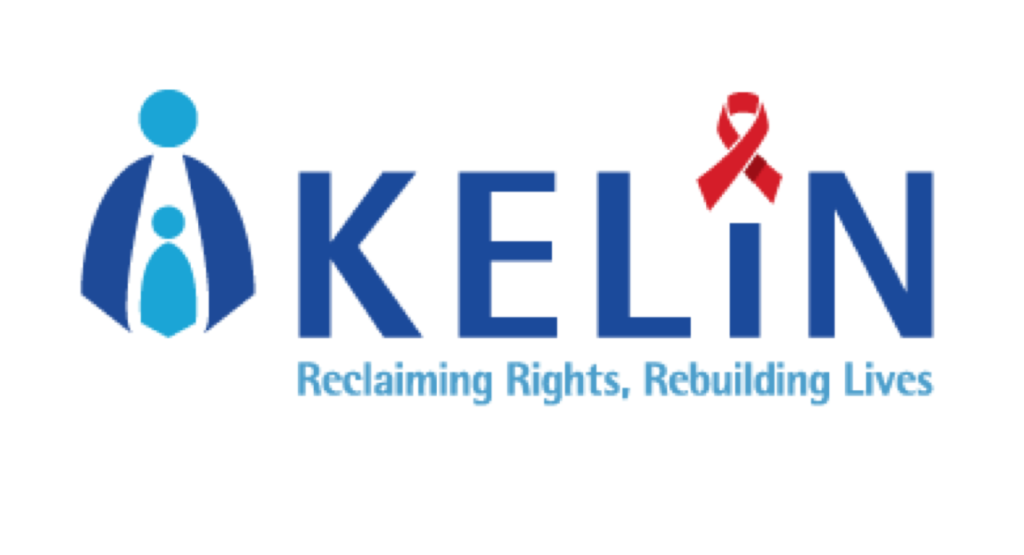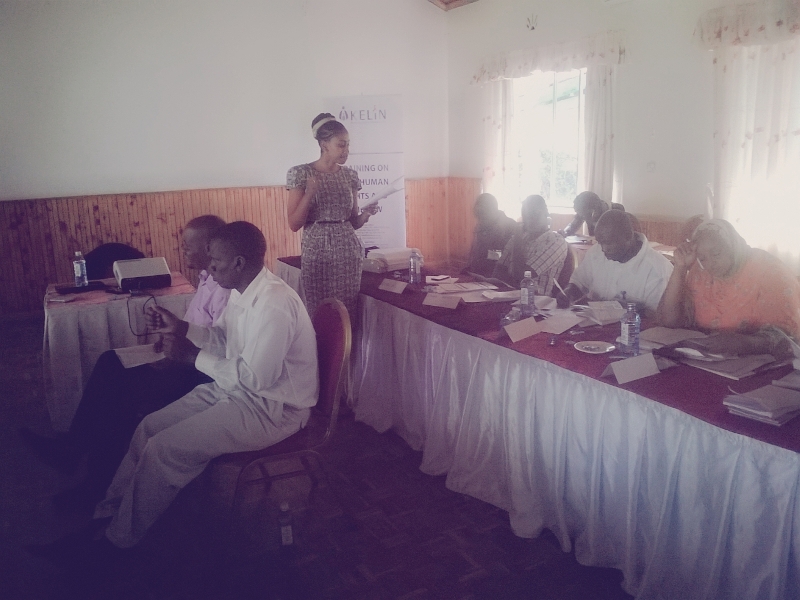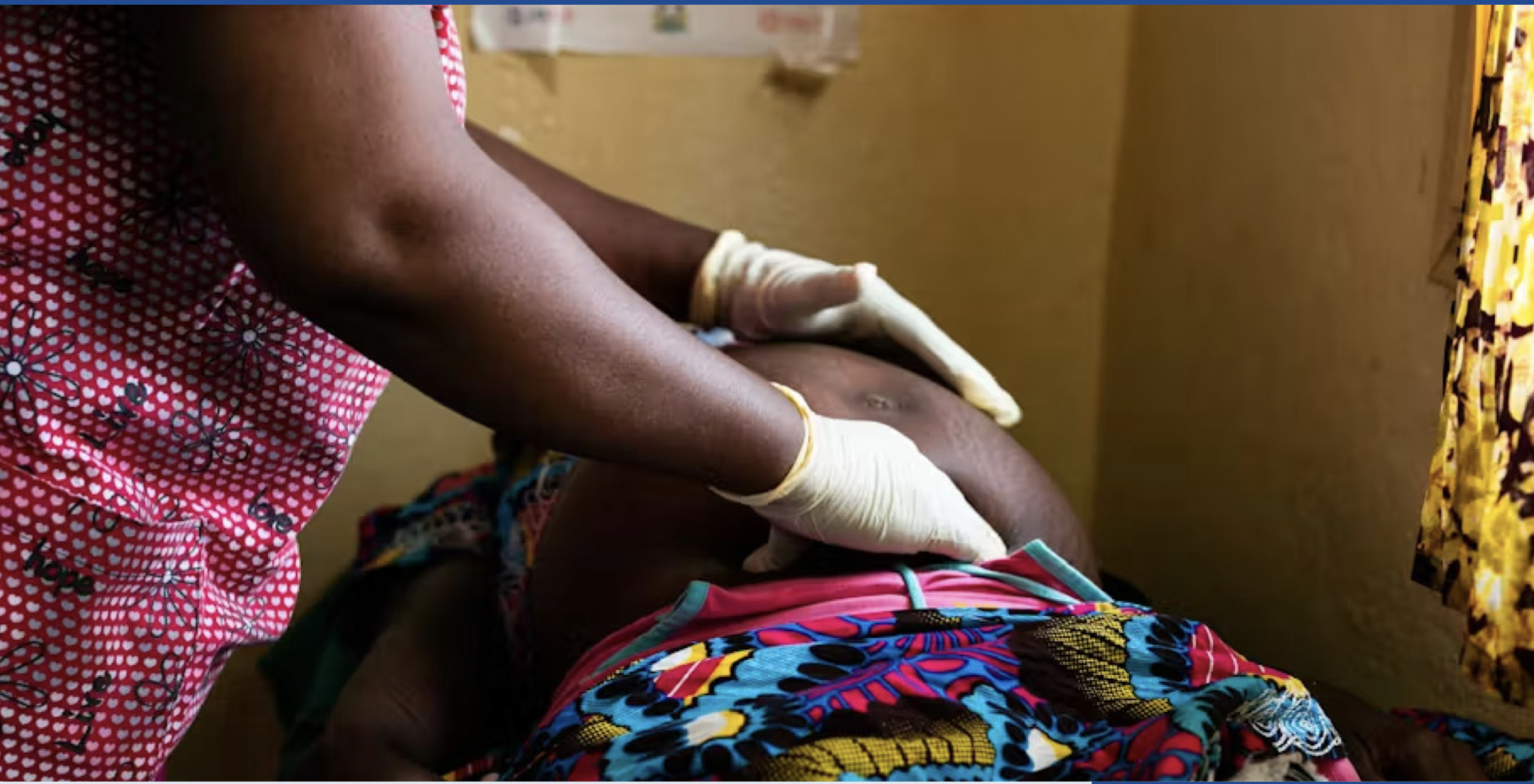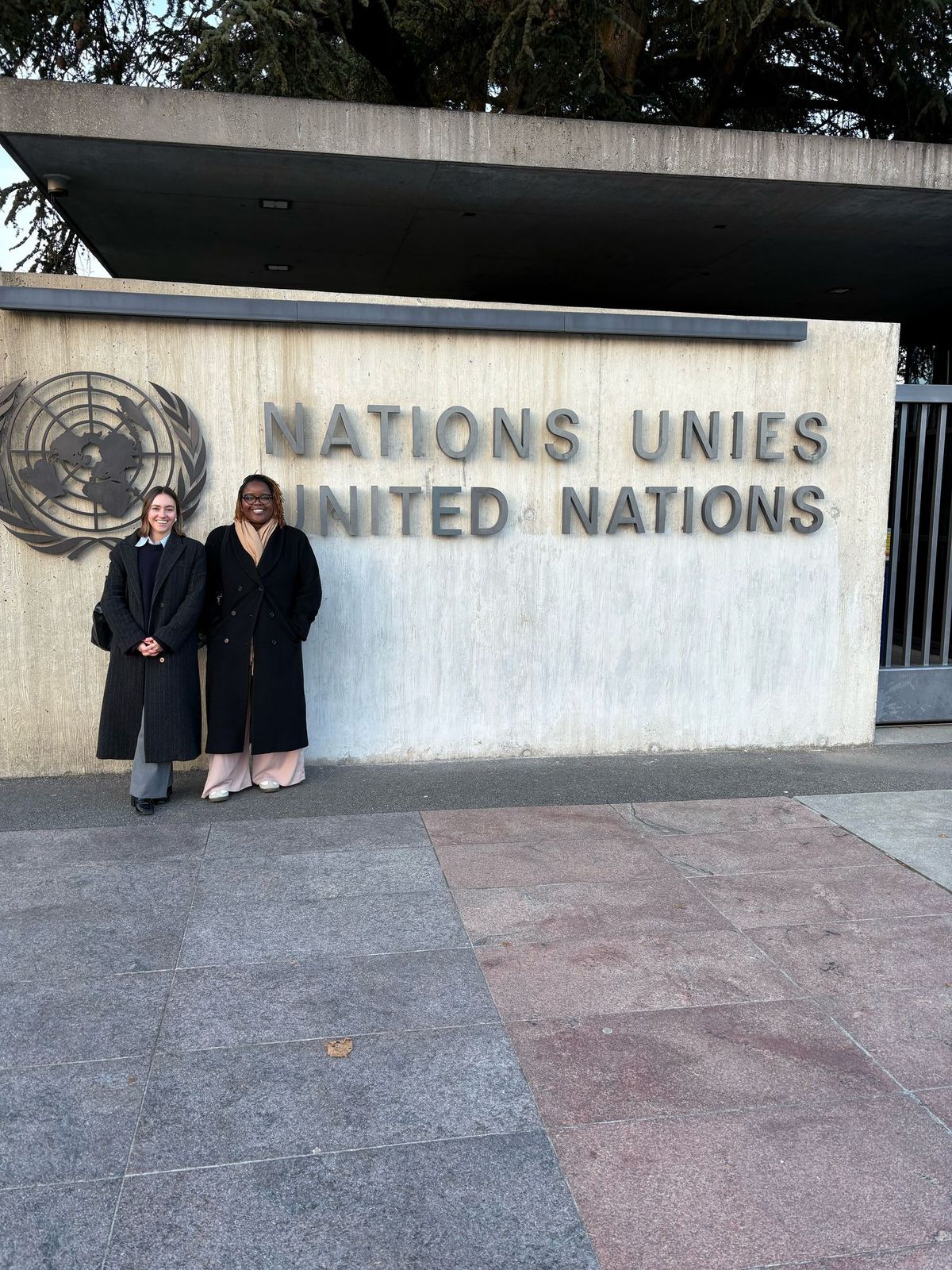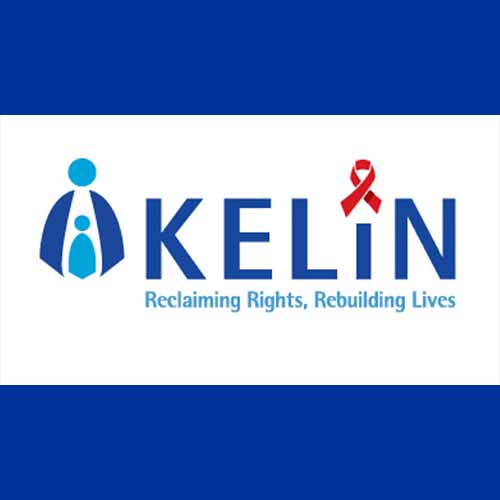- Ms. Katindi taking the participants through the HIV & AIDS Prevention and Control Act
Photo by: KELIN/Regina Mwanza
KELIN Kenya in collaboration with United Disability Empowerment in Kenya (UDEK) and with support from Aids Fond conducted a residential training workshop in Nairobi County on HIV, Human Rights and Disability from 25th to 28th of March, 2014 at Kasarani Sportsview Hotel, Nairobi. The training brought together 20 beneficiaries of various organizations working with persons living with disabilities within the County. Additional participants were from Mombasa, Machakos, Kakamega, Kiambu and Busia Counties.
The objective of the training was to enhance participants understanding of HIV related human rights and their legal protections in order to mitigate the impact of HIV for PWDs, enable them advance these rights and effectively challenge violations.
The participants engaged with medical and legal experts including key duty bearers from Commission on the Implementation of Constitution (CIC), National Gender and Equality Commission and the Commission on Administrative Justice (Ombudsman).
The key issues identified by the participants that needed advocacy during the training were the need for sensitization on Constitutional & legal rights for PWDs living with HIV in all Counties, a national HIV response engaging with persons with various disabilities in the development of HIV information & services to ensure their specific needs are addressed, the need to sensitize service providers and advocate for more disability friendly vehicles in the transport industry to facilitate easier, safe and effective access to health services in addition to addressing social economic factors that aggravate the burden of HIV on PWDs, need to generate national statistics on persons with disability living with HIV that captures the various disabilities and finally the need to develop HIV guidelines specific for PWDs seeking HIV information, services and interventions to guide health care workers in order to incorporate human rights and limit violations thus encouraging uptake of these HIV related services.
Speaking at the training, a visually impaired participant said, “we are thankful to KELIN for sharing the training materials in Braille, we can at least read on our rights.”
At the end of the training the participants came up with an action plan to enhance community awareness on the rights of PWDs living with HIV. Having identified numerous gaps, KELIN will be sharing the report from this workshop with National AIDS Control Council (NACC) and National AIDS and STD Control Programme (NASCOP) for consideration in the ongoing process of developing the Kenya National AIDS Strategic Plan (KNASP) IV.
